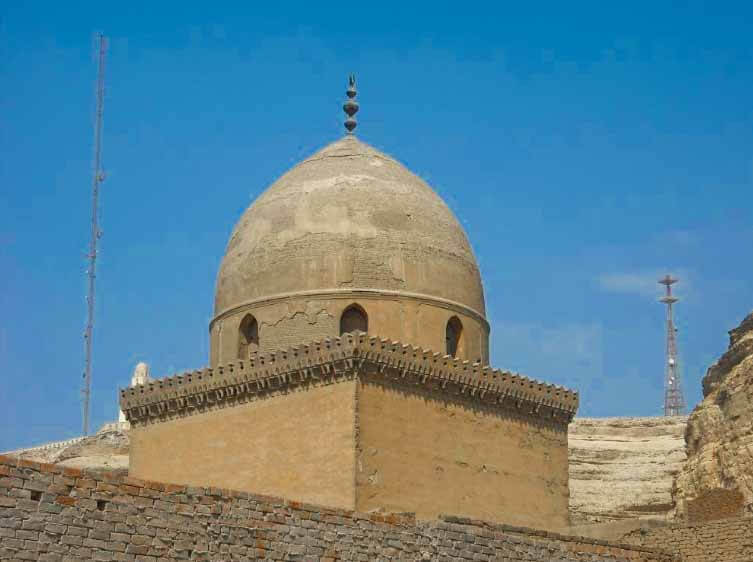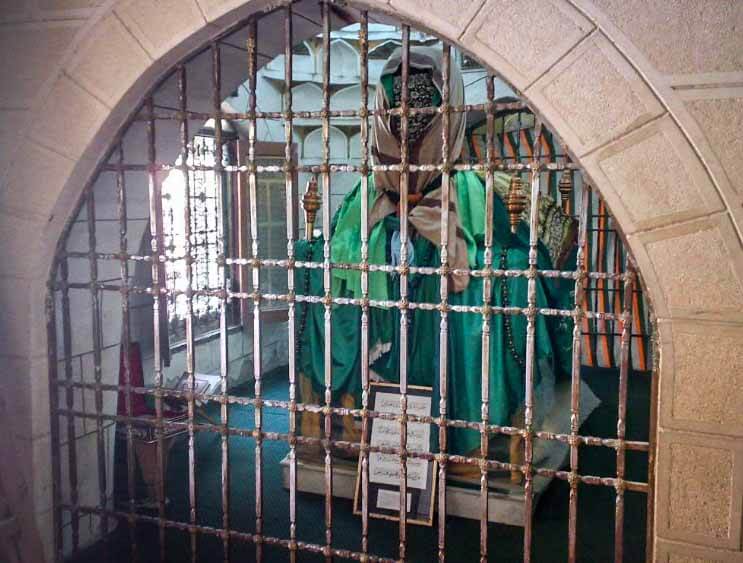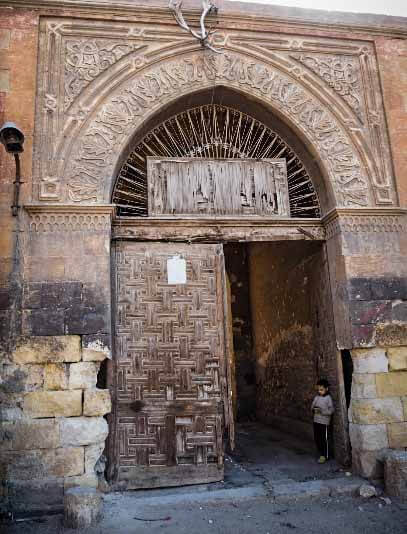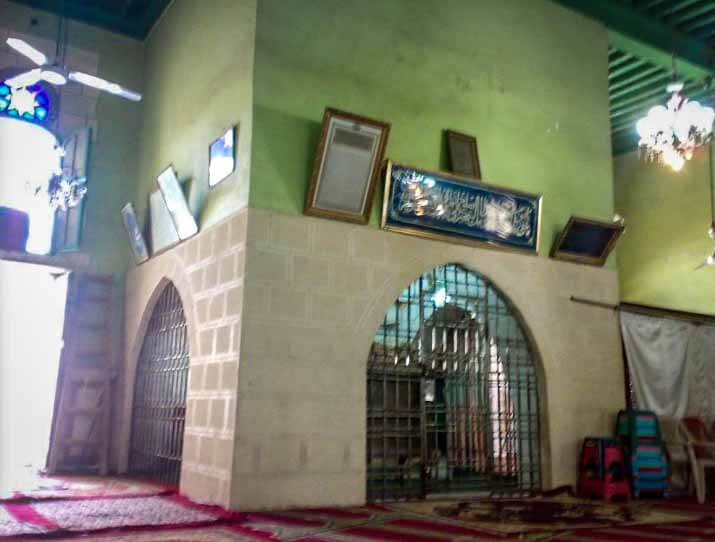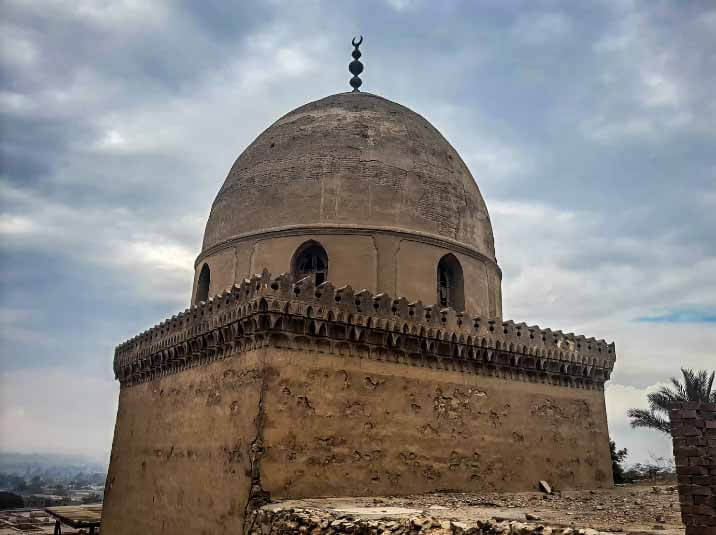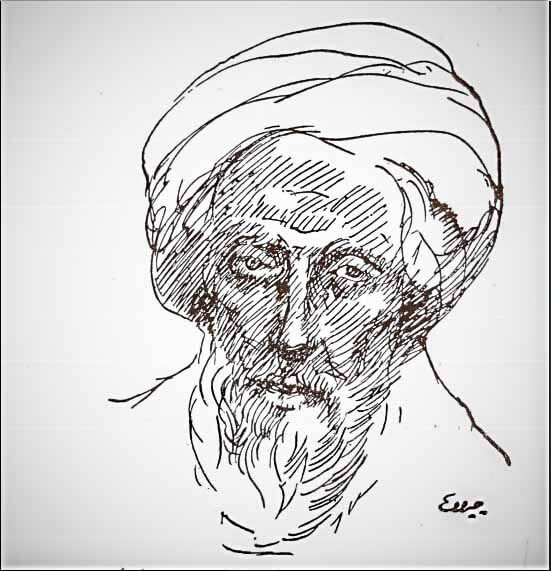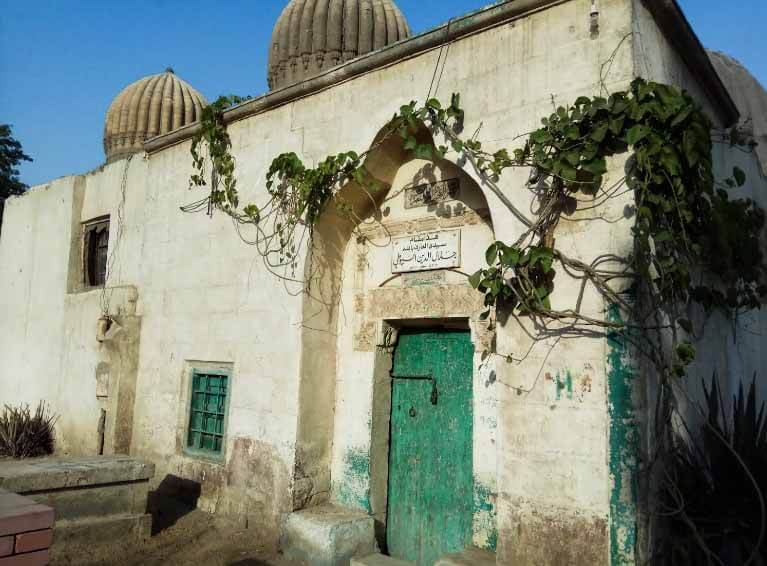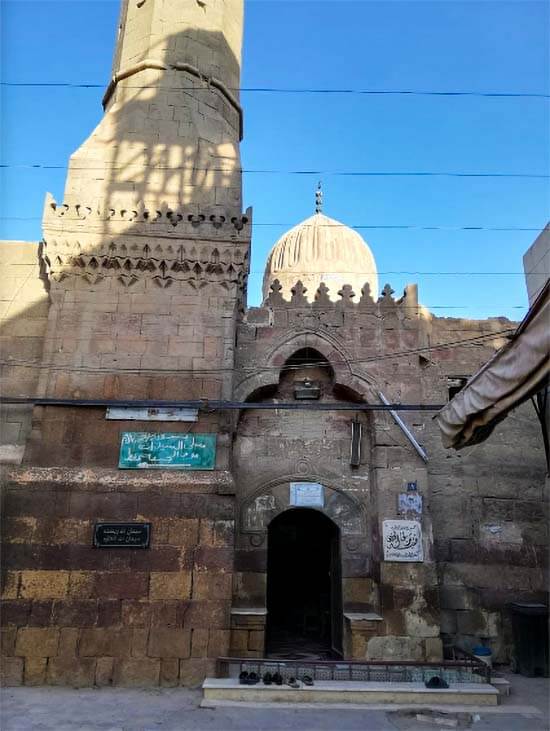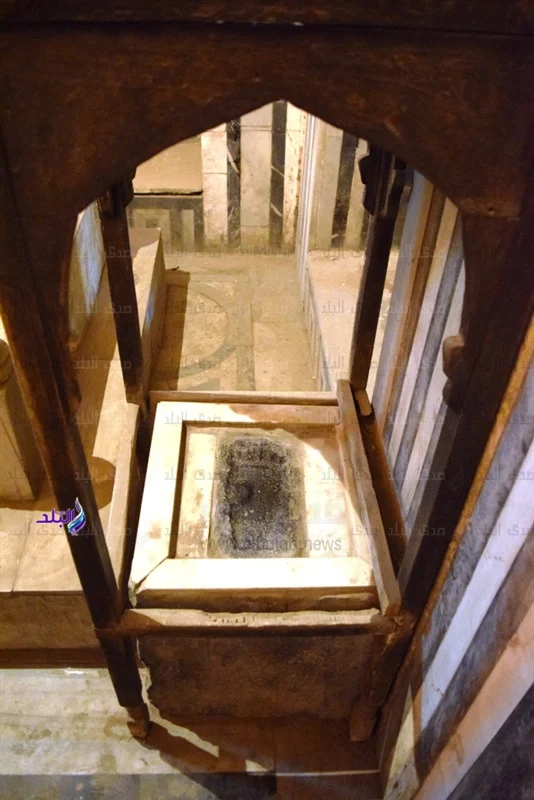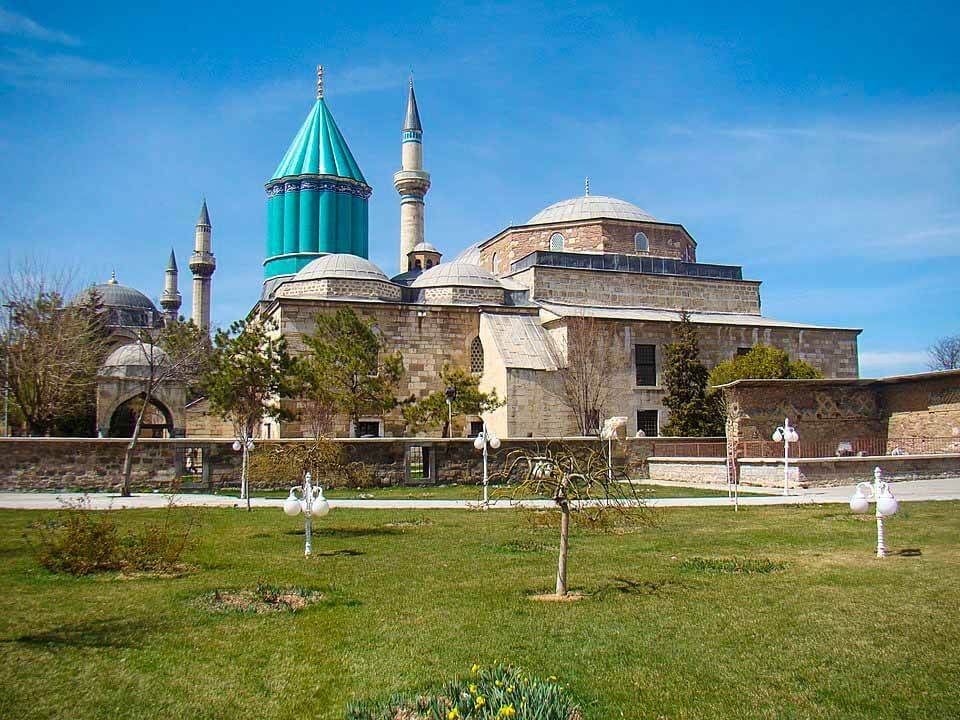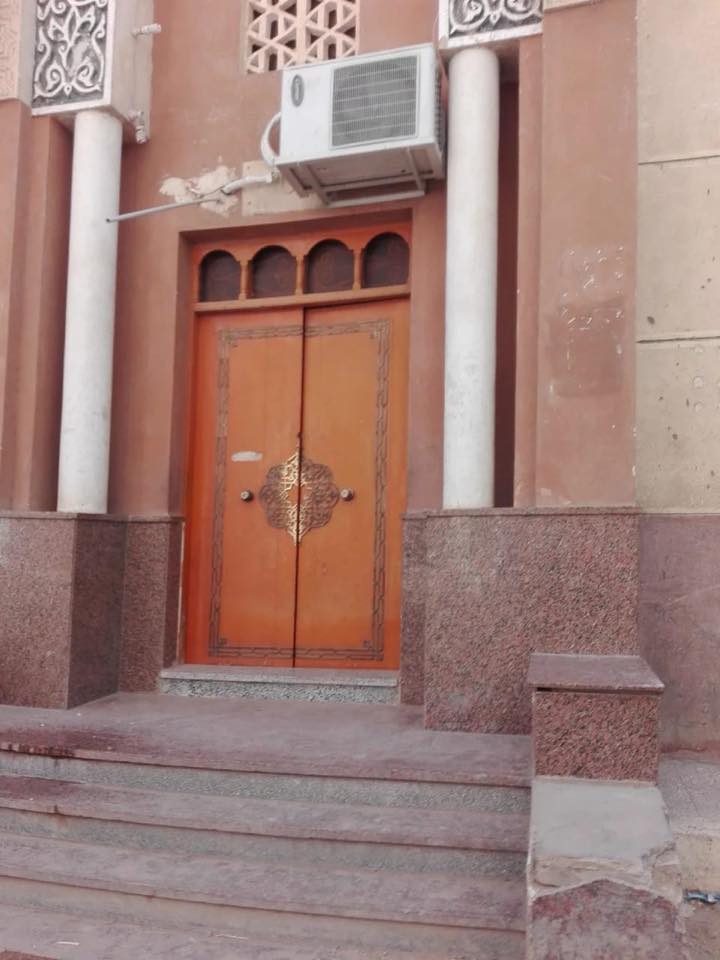Cairo, Egypt
Coordinates: 30.018572, 31.267520
Ibn al-Farid was an Arab poet. His name is Arabic for “son of the obligator” (the one who divides the inheritance between the inheritors), as his father was well regarded for his work in the legal sphere.
He was born in Cairo to parents from Hama in Syria, lived for some time in Mecca, and died in Cairo.
His poetry is entirely Sufic and he was esteemed as the greatest mystic poet of the Arabs. Some of his poems are said to have been written in ecstasies.
The poetry of Shaykh Umar Ibn al-Farid رحمة الله عليه is considered by many to be the pinnacle of Arabic mystical verse, though surprisingly he is not widely known in the West.
Life
When he was a young man Ibn al-Farid رحمة الله عليه would go on extended spiritual retreats among the oases, specifically the Oasis of the Wretches (Wadi al-Mustad’afin), outside Cairo, but he eventually felt that he was not making deep enough spiritual progress.
He abandoned his spiritual wanderings and enrolled in a madrasa studying in the Shafi’i school of law.
One day Ibn al-Farid رحمة الله عليه saw a greengrocer performing the ritual Muslim ablutions outside the door of the madrasa, but the man was doing them out of the prescribed order.
When Ibn al-Farid رحمة الله عليه tried to correct him, the greengrocer looked at him and said, “Umar! You will not be enlightened in Egypt. You will be enlightened only in the Hijaz, in Mecca…”
Hz. Umar Ibn al-Farid رحمة الله عليه was stunned by this statement, seeing that this simple greengrocer was no ordinary man. But he argued that he couldn’t possibly make the trip to Mecca sharif right away.
Then the man gave Hz. Ibn al-Farid رحمة الله عليه a vision, in that very moment, of Mecca sharif.
Hz. Ibn al-Farid رحمة الله عليه was so transfixed by this experience that he left immediately for Mecca sharif and, in his own words, “Then as I entered it, enlightenment came to me wave after wave and never left”.
Shaykh Umar Ibn al-Farid رحمة الله عليه stayed in Mecca sharif for fifteen years, but eventually returned to Cairo because he heard the same greengrocer calling him back to attend his funeral.
Upon his return he found the greengrocer on the point of death, and they wished each other farewell.
Upon Hz. Ibn al-Farid’s رحمة الله عليه return to Cairo, he was treated as a saint.
He would hold teaching sessions with judges, viziers and other leaders of the city. While walking down the street, people would come up to him and crowd around him, seeking spiritual blessings (barakah) and try to kiss his hand (he would respond by shaking their hand).
Hz. Ibn al-Farid رحمة الله عليه became a scholar of Muslim law, a teacher of the hadith (the traditions surrounding the sayings and life of the prophet Muhammad ﷺ), and a teacher of poetry.
Death and Burial
Hz. Ibn al-Farid رحمة الله عليه died in the Al-Azhar Mosque. He was buried in Qarafah cemetery at the foot of Mt. Muqqattam under the al-Arid mosque.
The burial was postponed because the grave was not completely dug. Some said this was to “chastise him for claiming such a high status in love” while others said it was “merely the last indignity that one of Allah’s chosen must suffer from the contingencies of the world below”.
Legacy
Every Friday, Cairenes gather at Hz. Ibn al-Farid’s رحمة الله عليه tomb to listen to readings of his poems.
There was once a Sufi order in Egypt in the sixteenth century C.E. called “al-Faridiyah”. It supposedly originated from Hz. Ibn al-Farid رحمة الله عليه, but is no longer in existence.
Due to the subject matter of his poems and the beauty of the verse, Hz. Ibn al-Farid رحمة الله عليه later became referred to as “sultan al-ashiqin” (“the sultan of lovers”).
Moulid of Hz. Ibn al-Farid رحمة الله عليه
There is a moulid of Hz. Ibn al-Farid رحمة الله عليه. It begins with a procession starting in Cairo that travels through Mamluk graveyards known as the “City of the Dead” and ends at his tomb which lies at the base of Mount al-Muqattam in the sandstone hill area of the Eastern part of Cairo.
The moulid continues for two more days of meditations, prayers and dancing.
During the procession, some men put skewers through their cheeks. It does not appear that Hz. Ibn al-Farid رحمة الله عليه practiced this; the origination of the tradition is unknown.
It is said though that the spirit of Hz. Ibn al-Farid رحمة الله عليه protects the men who do this.
The trance-like aspect of the dancing and the procession are connections to Sufi background of Hz. Ibn al-Farid رحمة الله عليه.


